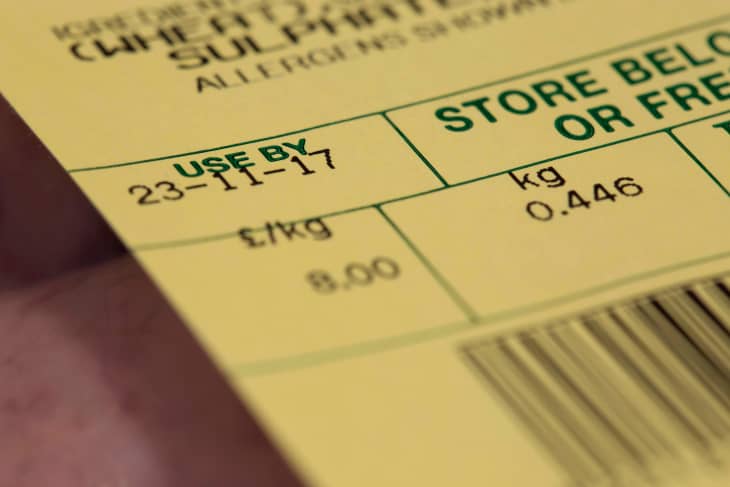Why One Dad Decided to Live on Expired Food for a Year
One of my favorite treats in the world is strawberry yogurt — the French kind with the little pieces of fruit in it. Because of its unique texture and ability to go bad in a snap, freshness is always on my mind when eating it. I often even have a person double check it (yes, really) to make sure it’s not expired even though the expiration date is days, sometimes even weeks from the day I’m eating it. I guess you could call me a expiration date skeptic.
Turns out my polar opposite has been living in the same county as me all this time, and he just completed an experiment: eating “expired” food for a year.
WTOP reports that D.C.-area grocery store My Organic Market (MOM’s Organic) owner, Scott Nash, has just completed a year of eating expired food — that is, food that says it was expired via its sell-by date but actually was still edible. Nash relates this in a blog post about what exactly inspired him to start eating food that may have gone bad according to its labeling.
“I have an old cabin in Virginia,” Nash starts on his blog, Scott’s Compost Pile. “One spring, I accidentally left a yogurt in the fridge. I didn’t make it back down until the fall, when this picture was taken on October 1, 2016. Note the expiration date is March 30, 2016. That is six months past the expiration date! As I began to make my fruit smoothie, the yogurt was in the corner of my eye. I opened it. It smelled fine and there was no mold. I decided to throw it into the blender. I drank and waited. No problems!”
(There’s one slight problem — my nausea — but I digress.)
Like Newton with gravity, Nash continuously experimented with this theory, consuming everything from meat, such as beef, chicken, and even fish (which Nash said had a “smell” he easily washed off — okay!), well past its expiration date to even buttermilk a month past its expiration with no event. Nash also consumed butter, which he says “got moldy sitting in my fridge for months and months.” He used it after he “scraped off the mold,” and, according to him, he was fine.
Nash even served romaine lettuce at the height of the FDA recall during Thanksgiving dinner, and every single one of his family members took a little bit and didn’t get sick, which I don’t exactly endorse (perhaps listen to the FDA when they tell you something might kill you), but his family is fine! Totally fine.
One thing that Nash points out (that I wholeheartedly agree with) is the arbitrary dating on some items like baby wipes, toothpaste, and salt. What gives? Nash also points out the concept of planned obsolescence, which is an economic term which basically dictates that if you plan for your customer to need to get another one of your product down the line, it benefits your profits. That is to say, if your customers throw away your perfectly fresh product and need to get another one, that’s another way that you can make money. Thus, expiration dates on things like salt — which really doesn’t expire, if we’re being honest — ensure that.
“In the meantime, my fellow Americans,” Nash continues, “please get informed and change your behavior. We are all responsible for making a difference — and EVERY piece of saved food counts.”
I think that’s something we can all agree on.
